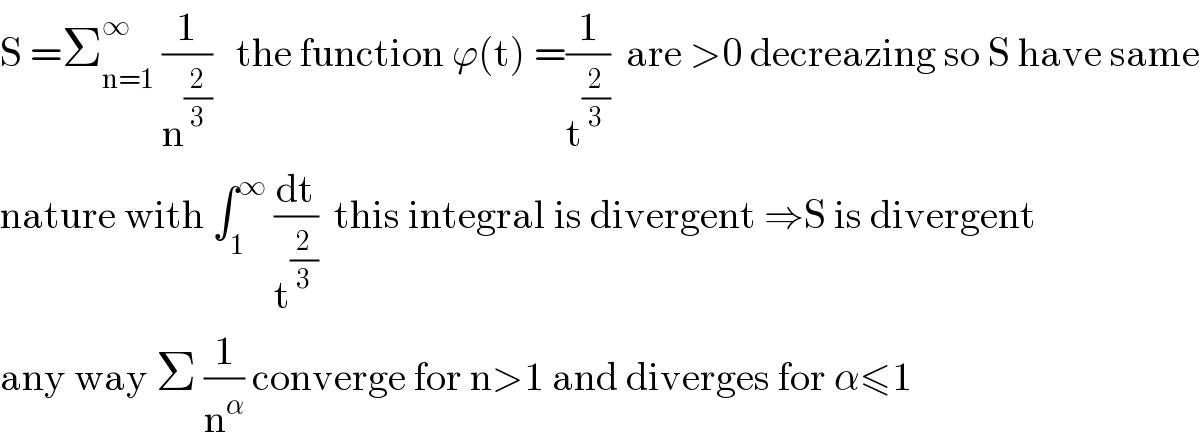
Question and Answers Forum
Question Number 102544 by 175mohamed last updated on 09/Jul/20

Answered by Rio Michael last updated on 10/Jul/20

Answered by mathmax by abdo last updated on 10/Jul/20

Commented by 175mohamed last updated on 13/Jul/20

| ||
Question and Answers Forum | ||
Question Number 102544 by 175mohamed last updated on 09/Jul/20 | ||
 | ||
Answered by Rio Michael last updated on 10/Jul/20 | ||
 | ||
| ||
Answered by mathmax by abdo last updated on 10/Jul/20 | ||
 | ||
| ||
Commented by 175mohamed last updated on 13/Jul/20 | ||
 | ||